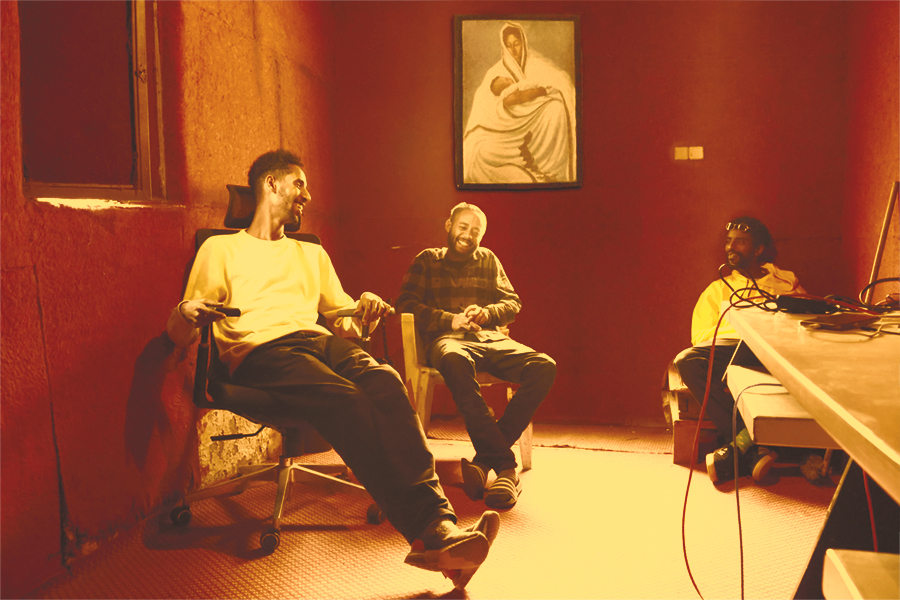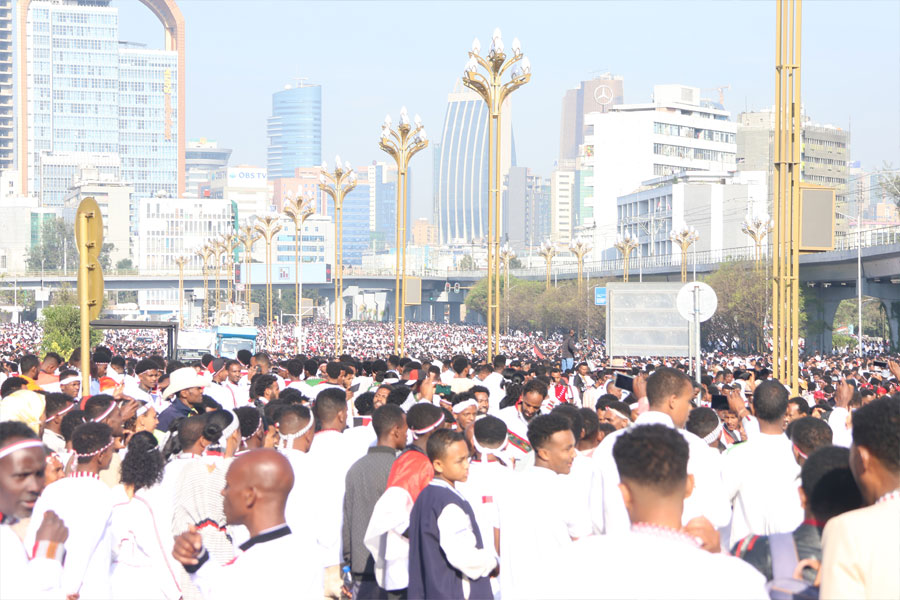
Viewpoints | Oct 14,2023
A cherished cultural establishment, famous for its traditional music and unique offerings of local spirits, is threatened with demolition to make way for hotel development. The potential for an imposing, five-star luxury property threatens to engulf the spirited rhythms of traditional music and the warm, animated conversations sparked by Tej, a traditional spirit, savoured by locals and visitors alike at Fendika Cultural Centre.
Tilqsew Gedamu, a notable businesswoman known for developing the landmark Grand Hotel in Bahir Dar, the seat of the Amhara Regional State, is the force behind the prospective development in the Casanchis neighbourhood.
Tilqsew's claim to this land is part of a city-wide scheme that saw 59 prospective developers earmarked for land allotment last year. Prominent developers such as Adama Steel, Alsam Properties, and the Cooperative Bank of Oromia (COOP) were among those granted land allotments from the city cabinet during this period. However, her plans to build the hotel in a 2,700sqm plot will dislocate 25 properties in Wereda 8 of Kirkos District, including Fendika Cultural Centre, a cultural landmark.
Melaku Belay, the founder and owner of Fendika Cultural Centre, fervently opposed the planned demolition of this cultural hub, which reportedly welcomes more than 20,000 visitors annually. Melaku, an illustrious traditional dancer, acquired the property built on a 462sqm plot from the previous owner, Sirak Astatke, for 4.7 million Br four years ago. The cultural centre provides employment for 48 people.
Despite the prospect of financial compensation, Melaku insisted the cultural value of his establishment could not be quantified monetarily.
"The spirit of the place can't be measured in money," he lamented during a press conference last week.
He had envisioned constructing a 20-storey building on the plot, having paid off the 30-year lease in a lump sum two years ago.
For Jemal Ibrahim, head of Kirkos District Land Development Bureau, any significant real estate development, such as the one proposed by Melaku, requires the city administration`s approval. He asserted that a 20-storey building on such a small plot fails to comply with the city's master plan, requiring a larger parcel of land.
A meeting was convened 10 days ago to address concerns and discuss compensation, evacuation schedules, and property valuation, according to Samuel Hailemichael, head of Woreda 8 City Land Development & Administration Bureau.
Kirkos District is where property owners relocating file claims for compensation; its officials are responsible for keeping residents informed.
Adem Redi, an urban planning expert with 15 years of experience, emphasized the importance of consulting with residents before pushing any development projects, stating what should be prioritized.
"The last four years seem a bit chaotic," Adem told Fortune, identifying a pattern of behaviour by the city administration that he believes overlooks the prevailing housing demand in the capital. According to the city administration's website, the capital has a population of 5.5 million.
As land lease auctions recommenced following a four-year hiatus three weeks ago, local officials have witnessed renewed bids exceeding 600,000 Br for a square meter, indicating the high demand for land in the capital.
Recognising Fendika's vital contribution to the art scene, Wondwessen Kebede, secretary of the Ethiopian Visual Artists Association, sympathises with the 25 artists who enjoy the opportunity of exhibiting their paintings annually at Fendika Cultural Centre for 10 days, free of charge.
"It's worthwhile for the artists," he told Fortune, underlining that Melaku did not claim fees from selling the artworks. "Foreign visitors come regularly."
The Casanchis area, Zewditu Street, where Fendika Cultural Centre resides, has been a bastion of live traditional music and art for decades, in spaces known as Azmari bets. The last of these, Duduye, closed over 15 years ago.
As the struggle to preserve Fendika intensifies, the fate of this cultural landmark remains uncertain. Tilqsew, who expanded two years ago when she acquired Nexus Hotel in Addis for a staggering 740 million Br, was unavailable for comment on the issue.
However, her plans to pursue hotel development, threatening to extinguish the cultural flame that has been burning in Fendika for a quarter-century, have faced a backlash.
Wondwessen, himself a professional painter, and the Association, which boasts 480 members, are spearheading an extensive social media campaign in a determined effort to save Fendika from its hapless fate.
A directive signed by Mayor Adanech Abiebe last year December updated property valuation rates, compensation methods, and allotment of replacement plots for residents displaced due to development projects. The minimum compensation rate is 1.3 million Br, regardless of the final computation. Software is used to factor in various parameters, such as the bill of quantity used for the construction, the social cost of relocation, and loss of livelihood when calculating compensation. The city administration updates the valuation rates every two years, and a 120-day notice period should be granted to residents before any scheduled demolition.
This contrasts claims by some residents in the Yeka District, who allege their homes were demolished within a week's notice.
PUBLISHED ON
Jun 17,2023 [ VOL
24 , NO
1207]

Viewpoints | Oct 14,2023

Advertorials | Sep 15,2023

Films Review | Dec 26,2020

Radar | Nov 29,2020

Radar | Mar 26,2022

Fortune News | Mar 26,2022

Fortune News | Dec 05,2018

Exclusive Interviews | Sep 09,2023

Radar | Jul 20,2019

Fortune News | Oct 06,2024

Dec 22 , 2024 . By TIZITA SHEWAFERAW
Charged with transforming colossal state-owned enterprises into modern and competitiv...

Aug 18 , 2024 . By AKSAH ITALO
Although predictable Yonas Zerihun's job in the ride-hailing service is not immune to...

Jul 28 , 2024 . By TIZITA SHEWAFERAW
Unhabitual, perhaps too many, Samuel Gebreyohannes, 38, used to occasionally enjoy a couple of beers at breakfast. However, he recently swit...

Jul 13 , 2024 . By AKSAH ITALO
Investors who rely on tractors, trucks, and field vehicles for commuting, transporting commodities, and f...

Oct 25 , 2025
The regulatory machinery is on overdrive. In only two years, no fewer than 35 new pro...

Oct 18 , 2025
The political establishment, notably the ruling party and its top brass, has become p...

Oct 11 , 2025
Ladislas Farago, a roving Associated Press (AP) correspondent, arrived in Ethiopia in...

Oct 4 , 2025
Eyob Tekalegn (PhD) had been in the Governor's chair for only weeks when, on Septembe...